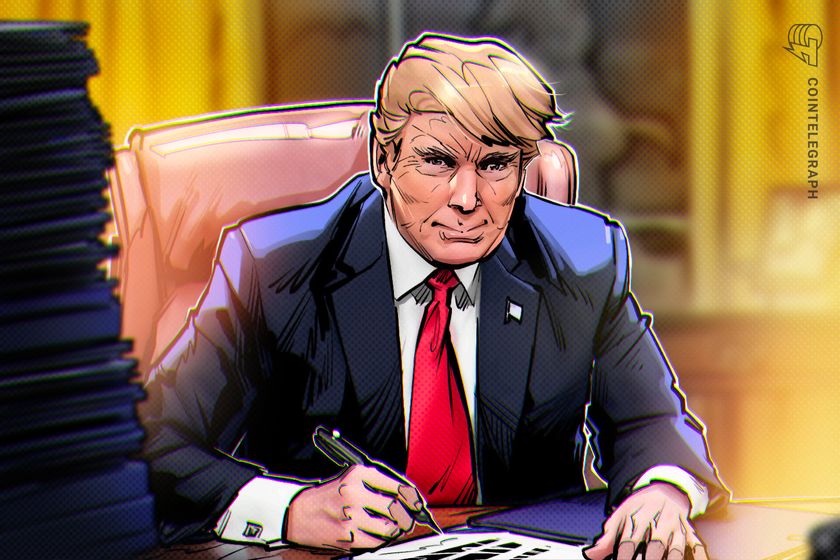

The United States Department of Justice (DOJ) is reportedly disbanding the National Cryptocurrency Enforcement Team (NCET).
NCET’s disbandment was noted in a four-page memo by United States Deputy General Todd Blanche, according to a Fortune journalist who claims to have seen the document in an April 8 report. The official is quoted saying in the note:
“The Department of Justice is not a digital assets regulator. However, the prior Administration used the Justice Department to pursue a reckless strategy of regulation by prosecution.”
Blanche is the second-highest-ranking official in the DOJ and served as US President Donald Trump’s defense attorney in high-profile cases, including the New York hush money case and federal cases related to classified documents and the 2020 election.
Related: Trump tariff negotiations are ‘all about’ China deal — Raoul Pal
What is the NCET?
The NCET’s launch was established in October 2021 under President Joe Biden. At the time, Deputy Attorney General Lisa Monaco said that the unit was aimed at going after platforms “that help criminals launder or hide their criminal proceeds.” She said:
“We want to strengthen our capacity to dismantle the financial ecosystem that enables these criminal actors to flourish and — quite frankly — to profit from what they’re doing.”
The NCET has been active since February 2022, and at the time of publication, its website remains online. The disbandment is reportedly effective immediately and implemented as part of the efforts to comply with Trump’s late January executive order reshaping US crypto policy.
NCET website. Source: US Department of Justice website
Related: US federal agencies to report crypto holdings to Treasury by April 7
Trump makes waves in US crypto policy
Before returning to office, Trump campaigned on a pro-crypto policy. He promised the creation of a United States strategic Bitcoin (BTC) reserve, spoke at crypto conferences both before and after his reelection and promised to make the US a global crypto leader. He also picked a pro-crypto Securities and Exchange Commission chairman.
Despite the administration’s favorable stance, critics have raised concerns over potential conflicts of interest. Trump and his family are behind the World Liberty Financial (WLFI) decentralized finance (DeFi) protocol, the Official Trump (TRUMP) memecoin and his Trump Media is launching crypto exchange-traded funds (ETFs) in partnership with Crypto.com.
The projects themselves were also the source of multiple controversies, with the presidential memecoin being hit with insider trading allegations, later written off by some as MEV bot activity. Concerns were also raised about the WLFI’s World Liberty Financial USD (USD1) stablecoin and how it could complicate ongoing bipartisan efforts to pass stablecoin legislation in Congress.
This led to Five Democratic lawmakers in the US Senate calling on leadership at regulatory agencies to consider the potential conflicts of interest caused by the USD1 stablecoin in late March. Earlier in April, California Representative Maxine Waters suggested that Trump may be looking to replace the US dollar with his stablecoin.
Magazine: Trump’s crypto ventures raise conflict of interest, insider trading questions



